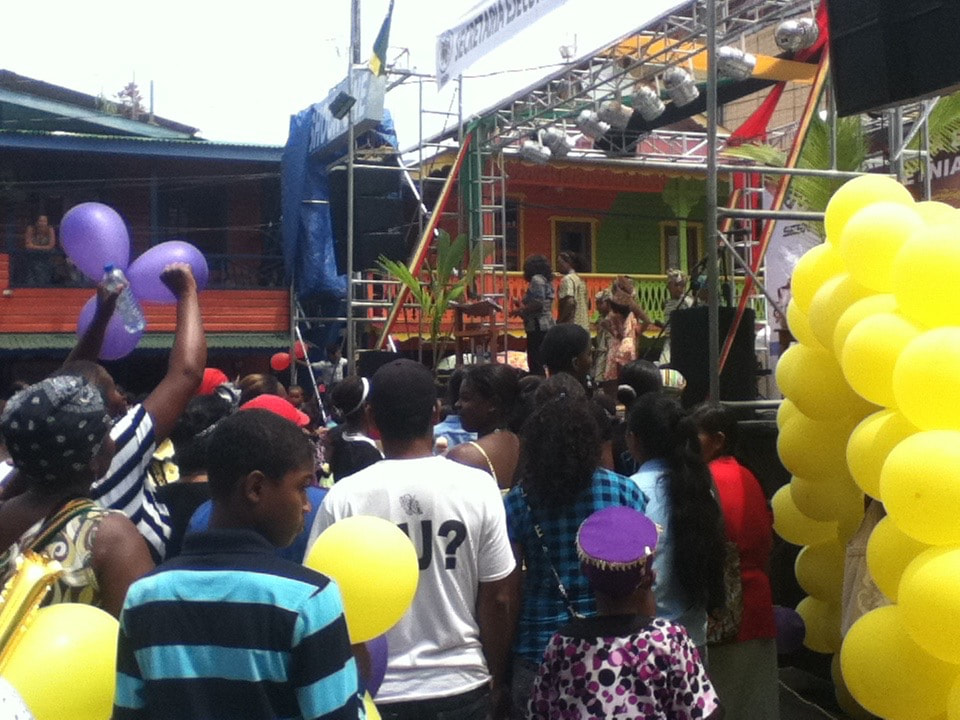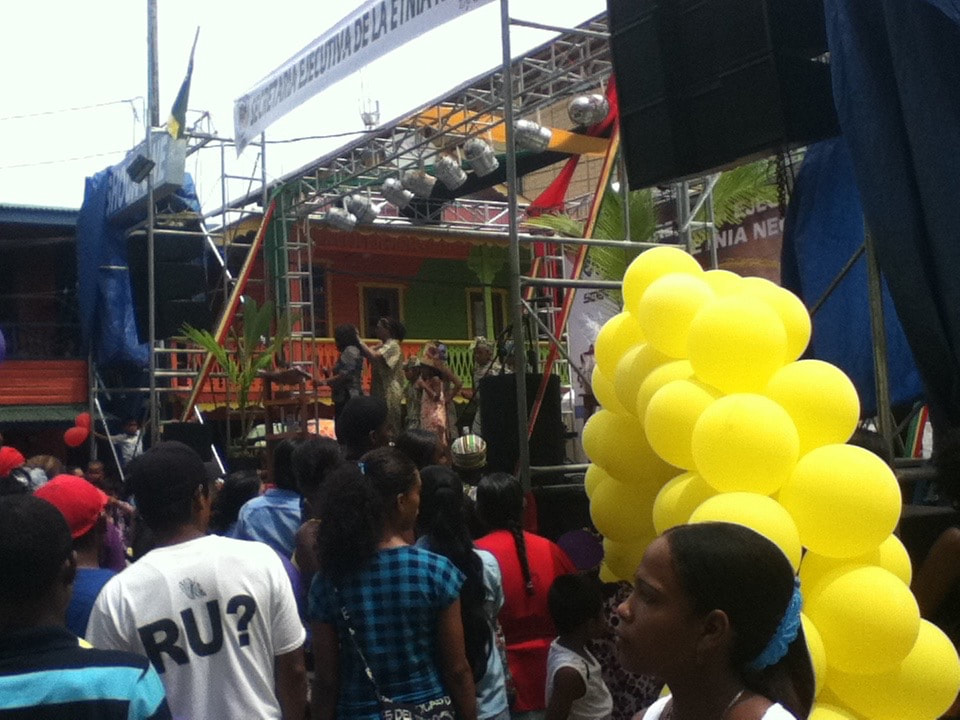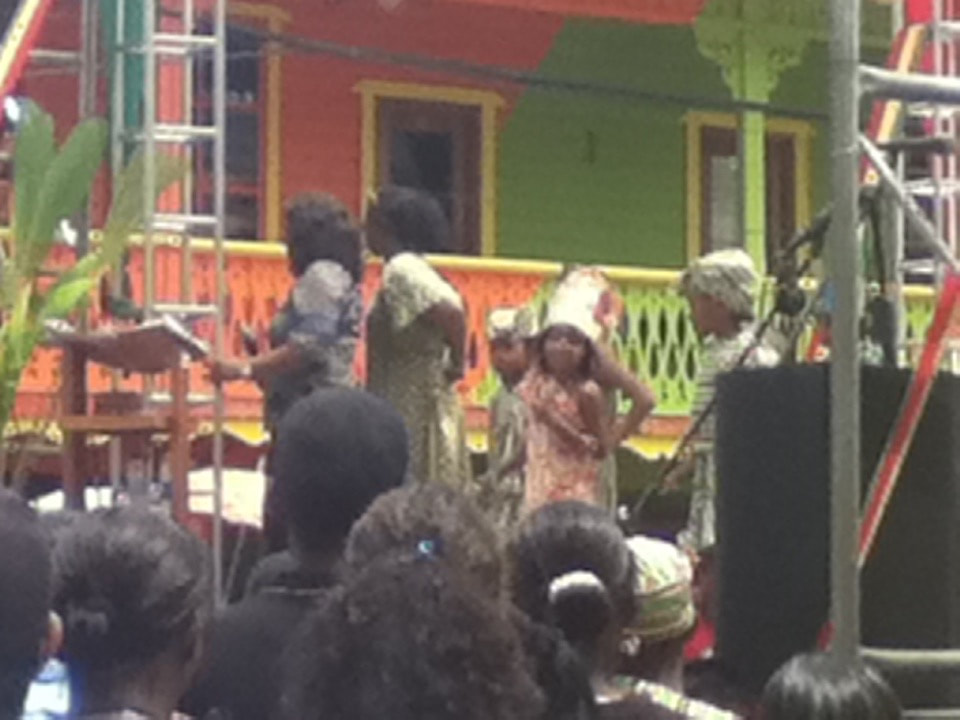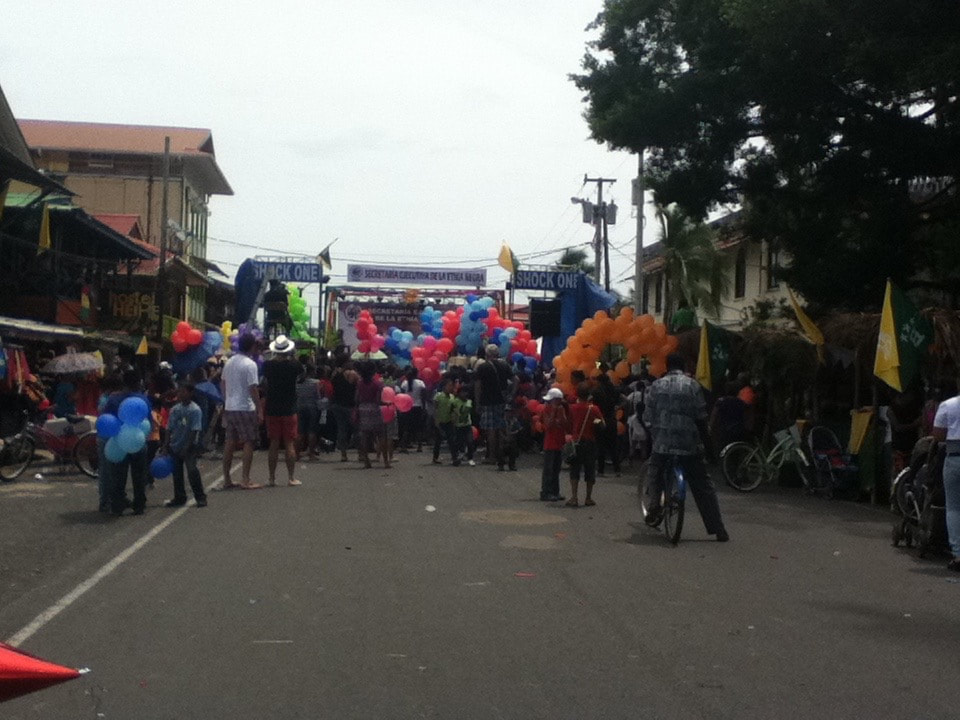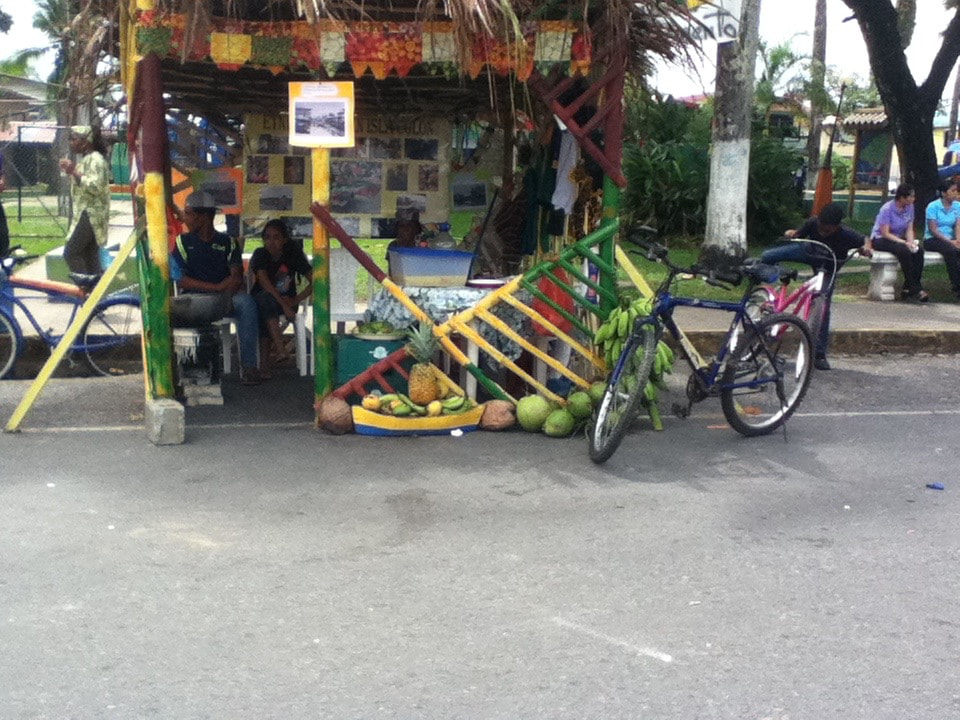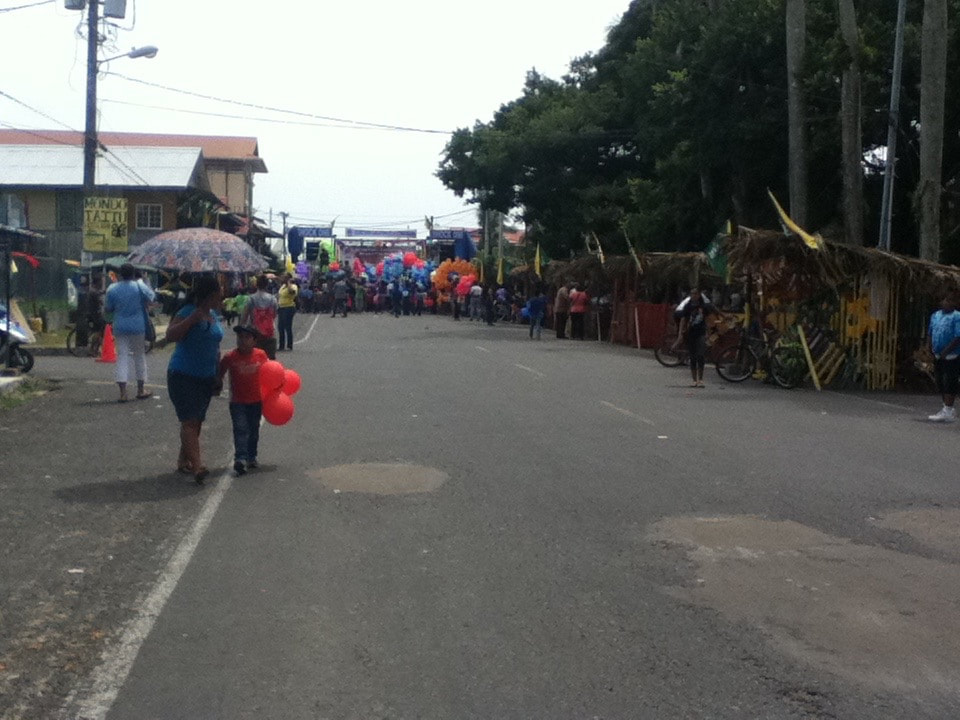|
By: Viannca Velez
Bocas de Toro, Panama was paradise for us. It was by far one of the most diverse cities I had seen up to that point my life, with culture clashing and melding at its highest level. I found myself observing tourists, moving quickly through the town's center to make their way to their vacation homes, backpackers searching for, or already settled (some for weeks, others months) in hostels, backpackers-turned-residents, and residents. It was fascinating, at so many points I couldn't tell who was who. The town had a mellow feel. It's an island that is part of an archipelago, situated a stone's throw away from the others. So close in fact, that the thing to do was take a lancha from the main island to the smaller islands at night to party. All night, boats would go back and forth. However, since we were there during the off-season, things were a little calmer. I'm glad that was the case. I'm not sure if I would have felt the same encanto had it been packed to the rim with wildness. Although, we did have a crazy fun night at a club that was co-owned by a Dominican. They had amazing music and a little cutout area dock where you could sit with your feet in the beautiful clear ocean water. Our hostel had something like $.50 shots and dollar drinks. You can imagine the buzz before we headed to the club. In this town, we watched groups of kids come out of school together dancing to reggae as they walked. Some looked Asian, some indigenous, some black and others mestizo. I remember, to be fully transparent with you, the culture shock I experienced when I saw a young Panamanian-Asian boy dancing reggae with swag and skill. Right before I saw him hit his moves, I didn't imagine he could. It's like my mind didn't have space for his physical features to mix with reggae music. I felt like terrible when the shock hit me. It was a learning moment, I became a little more aware of the stereotypes that live in my subconscious and their ineffectiveness. Our arrival to Bocas, by the way, was the second leg of our trip. We first arrived to the central mountains of Costa Rica, made our way down the country's west coast toward Panama. Once we crossed the border (this whole experience of getting their btw is another post worth reading, so, wait for it) we bussed it to the east. It was crazy to us how much we started to feel at home the closer we got to the east/Caribbean coast. The food was closer to our Puerto Rican/Dominican palettes and the people's vibes were punchier. We'd found ourselves in Central America. It was interesting to me, the whole area had such a strong influence of Jamaican culture, an island I had visited just about a year before. It's something else that didn't fit in my head. I didn't imagine a Latin American country being influenced by another culture in such a strong way. Other than of course, the cultures that historically influenced and created what we know to be Latino. I learned from the people there that the area had been a major point of interest for neighboring countries, like Jamaica because of their banana plantations. Many people came looking for work to this coast and therefore the influence. I thought I knew Latin American culture. What I knew after this trip, is that I knew little. One of the most important experiences to me was seeing their Etnia Negra festival. It was the first time I had experienced a Latin American community celebrating their black heritage in a direct way. Maybe I had experienced the celebration of Afro-Latinx heritage at a second degree, in that so much of our African descent created what we know to be Latinx culture, but not under a title like that... Etnia Negra. I felt like my eyes opened that day. A Black Latinx community celebrating their heritage directly, not under the umbrella of Panamanian culture or Latin American culture, but under their own. This experience would inspire our first podcast episode. Hamlet: In this trip I had two separate conversations with two local young men; one of them was the lancha driver who was very intrigued of the way we as Latinos live in USA, our way of life and all that, so when I told him how beautiful this island is, he said to me, "I am asking not because I like to go but just to know your point of view of the USA. I would never leave este Paraiso here I have EVERYTHING I want and need." The other convo I had was with one of the workers of the hostal we were staying in, this guy was so notoriously HAPPY that I had to talk to him and long story short, he told me that he was born, raised and he will died in Bocas, that he was indeed very happy and proud to be from Bocas. I really admire their love and pride for their community. Another experience that I have never forgotten was a writing in one of the bathrooms that said "I came to the jungle to die and realized that I never lived." That quote personally touched me because of the wonderful experiences we were having in this small island in the middle of ocean and not rich at all, well not rich to the typical standard of luxury, but yet very rich in the love of their community and their culture. This trip is our first backpacking trip and definitely was a mind blowing experience in so many different levels. Thanks for reading.
0 Comments
Leave a Reply. |

